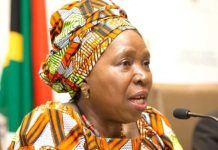It was good news for Zimbabwe that the International Monetary Fund (IMF) staff and the country’s authorities have reached an agreement on macro-economic policies and structural reforms to underpin a new Staff-Monitored Programme (SMP).
An SMP is an informal agreement between country authorities and IMF staff in which the latter agree to monitor implementation of a nation’s economic programme. SMP does not entail financial assistance or endorsement by the IMF executive board. It aims to implement a coherent set of policies that can facilitate a return to macroeconomic stability. This came as Finance minister Mthuli Ncube and his team is in Washington DC for IMF and World Bank spring meetings set for April 12-14.
A team from the IMF, led by Gene Leon, visited Harare from April 1-5 to continue SMP discussions. At the end of the visit, Leon issued a statement announcing the new SMP, underlining macroeconomic policies and structural reforms that can support the programme.
Zimbabwe is facing deep macroeconomic instability, with large fiscal deficits and huge distortions in foreign exchange and other markets, which severely hamper the functioning of the economy.
In addition, the country is facing the challenge of responding to the adverse effects on agriculture and food security of the El Niño-induced drought, as well as the recent devastation from Cyclone Idai.
The SMP, which will be monitored on a quarterly basis, aims to implement a coherent set of policies that can facilitate a return to macroeconomic stability. Successful implementation will assist in building a track record and facilitate Zimbabwe’s re-engagement with the international community.
The policy agenda to be monitored under the SMP is anchored on government’s Transitional Stabilisation Programme. It emphasises fiscal consolidation, elimination of central bank financing of government’s fiscal deficit, and adoption of reforms that allow market forces to drive the foreign exchange and other financial markets.
In addition, the agreed policies — both macroeconomic and structural — can be expected to remove critical distortions that have held back private sector growth and to improve governance. The SMP also includes important safeguards to protect the country’s most vulnerable people. While this is great news, the IMF also warned Zimbabwe would slide into recession this year, dampening hopes of economic growth in the country which has been lurching from one crisis to another for the past two decades. There are strong headwinds.
While government is doing a lot of things in the name of reform and change, the reality is that most of its measures are simply piecemeal — poorly planned, disorganised and disjointed — and hence little or no impact so far.
Government needs to have an organised and systematic reform agenda; starting with fixing the political issue and then economic matters simultaneously and subsequently.
There must be genuine talks to find a lasting political settlement and a comprehensive reforms package. This means the talks must be inclusive — in other words involve all the main political players, business and civil society — to come up with a new deal complemented by deep economic and structural reforms. Not the current sham.






